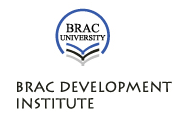Strengthening social protection for informal workers: supporting poverty reduction and social inclusion across stable and fragile contexts
In recent years, attention to the impacts of social protection has moved beyond an interest in immediate income and consumption support, to the role of social protection in promoting transformative change. This perspective suggests social protection can not only help people meet their basic needs but also contribute to their long-term wellbeing and broader societal goals of equity, inclusion, social justice and empowerment. While there is a substantial body of evidence on the short-term impacts of social protection, however, we know relatively little about its contribution to addressing these goals and tackling the societal structures and processes that generate poverty and social exclusion.
In this context, this research project seeks to assess the effectiveness and relevance of social protection and labour programmes in tackling social exclusion and promoting social inclusion in South Asia. The research has been developed and is being conducted in collaboration with research partners in four countries: Afghanistan Research and Evaluation Unit (AREU), BRAC Development Institute (BDI), Indian Institute of Dalit Studies (IIDS) and Nepal Participatory Action Network (NEPAN).
The research examines the potential for social protection and labour initiatives to enhance economic opportunities for socially excluded individuals and improve their access to and utilisation of essential social services, including health and education. It also explores the extent to which social protection can support individual empowerment, social relations and state-society relations in local communities. The research identifies the drivers of social exclusion, i.e. social, economic and institutional factors affecting well-being, and assesses how the interventions addressed these factors. It considers various dimensions of social exclusion, such as caste, ethnicity, religion, gender and disability.
The project seeks to:
- generate a solid evidence base on the extent to which social protection and labour programmes contribute to well-being and promote social inclusion - specifically informal workers but also other vulnerable groups; and
- effectively use this evidence to influence national social protection policy and programming in the case study countries.
Staff
-
Rebecca Holmes
Research Associate
-
Jessica Hagen-Zanker
Senior Research Fellow





